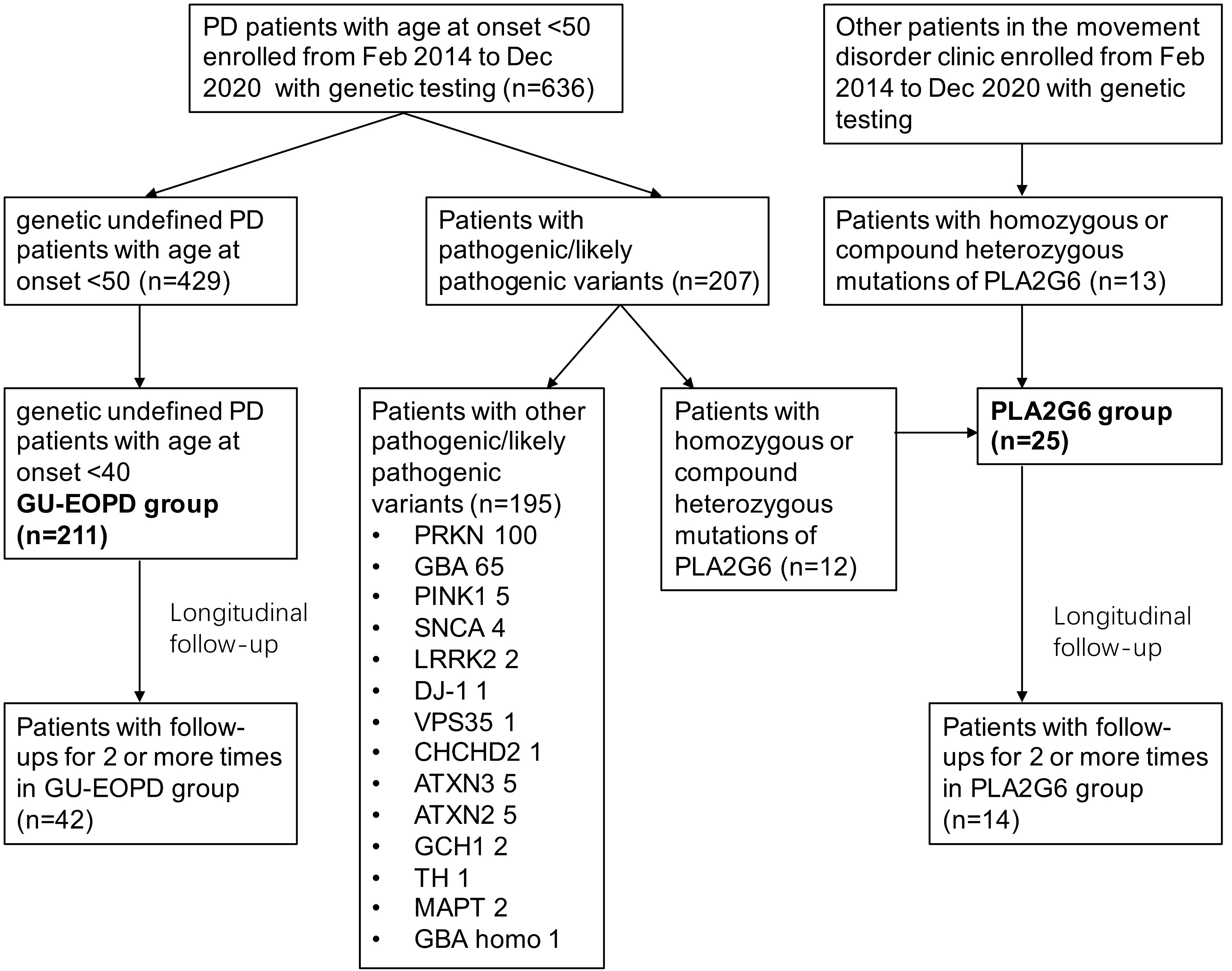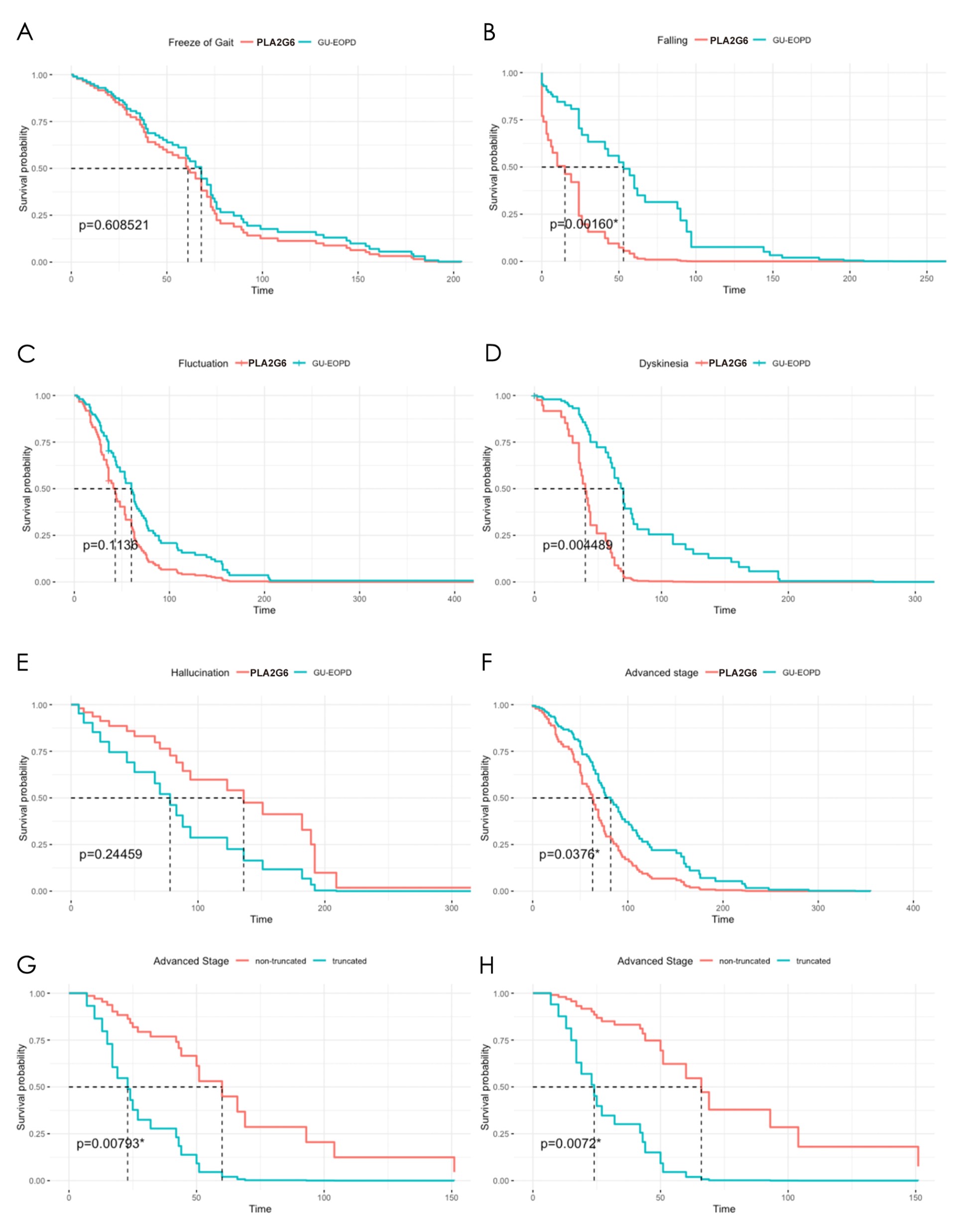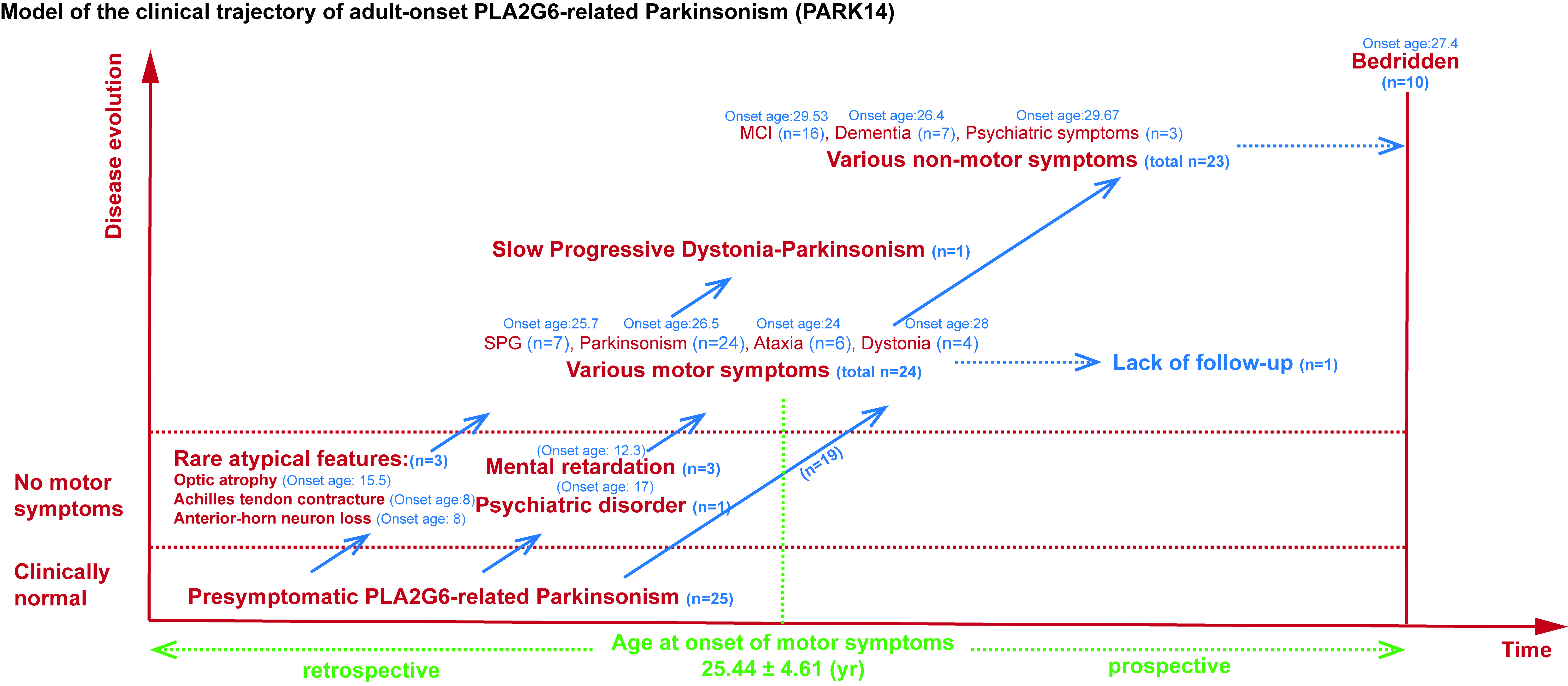Category: Parkinson's Disease: Genetics
Objective: To investigate disease progression of PLA2G6-related parkinsonism in a longitudinal study.
Background: There is a paucity of follow-up studies on disease progression in PLA2G6-related parkinsonism.
Method: Genetic analysis was performed by multiplex ligation–dependent probe amplification and target sequencing/whole exome sequencing. The dynamic variants of spinocerebellar ataxia were tested in probands with a family history. Twenty-five patients carrying homozygous or compound heterozygous PLA2G6 mutations (PLA2G6 Group) and 211 genetically undefined (GU) patients with Parkinson’s disease (PD), with age at onset <40 years (GU-EOPD Group) were investigated. Fourteen and 42 patients in the PLA2G6 and GU-EOPD Groups, respectively, underwent at least two follow-up visits (Figure 1). Multivariable Cox proportional hazard regression and linear mixed-effects models were used to evaluate disease progression.
Results: At baseline, patients in the PLA2G6 Group were in younger age at onset, had more severe motor and non-motor symptoms, and had worse cognitive function than those of the GU-EOPD Group (Figure 2). Follow-up study showed a shorter time period from motor onset to the development of falling/tumble, dyskinesia, and an advanced stage of disease (Figure 3). The estimated progression rate (standard error) of the motor score (MDS-UPDRS-III) was 1.73 (0.85) points higher per year in the PLA2G6 Group (p = 0.04). The difference in progression rate of the cognition (MMSE) score between the two groups was 0.44 (0.16) (p = 0.01) (Figure 4). After the start of motor symptoms, most PAL2G6 patients developed cognitive/psychiatric dysfunction within 2.60-3.83 years and some were bedridden within 5.00 years (Figure 5).
Conclusion: Patients with PLA2G6-related parkinsonism showed a more rapid deterioration of motor and non-motor symptoms, and cognitive dysfunction than GU-EOPD patients, which might give clues to the development of its pathology.
Figure 1. Flowchart of the study
Figure 2. Motor and non-motor features
Figure 3. Progression of the symptoms
Figure 4. Progression of MDS-UPDRS-III and MMSE
Figure 5.Clinical trajectories
To cite this abstract in AMA style:
YM. Sun, C. Chen, XY. Zhou, FT. Liu, JJ. Wu, J. Wang. Disease Progression in Patients with PLA2G6-related Parkinsonism: A Longitudinal Study [abstract]. Mov Disord. 2024; 39 (suppl 1). https://www.mdsabstracts.org/abstract/disease-progression-in-patients-with-pla2g6-related-parkinsonism-a-longitudinal-study/. Accessed July 10, 2025.« Back to 2024 International Congress
MDS Abstracts - https://www.mdsabstracts.org/abstract/disease-progression-in-patients-with-pla2g6-related-parkinsonism-a-longitudinal-study/





